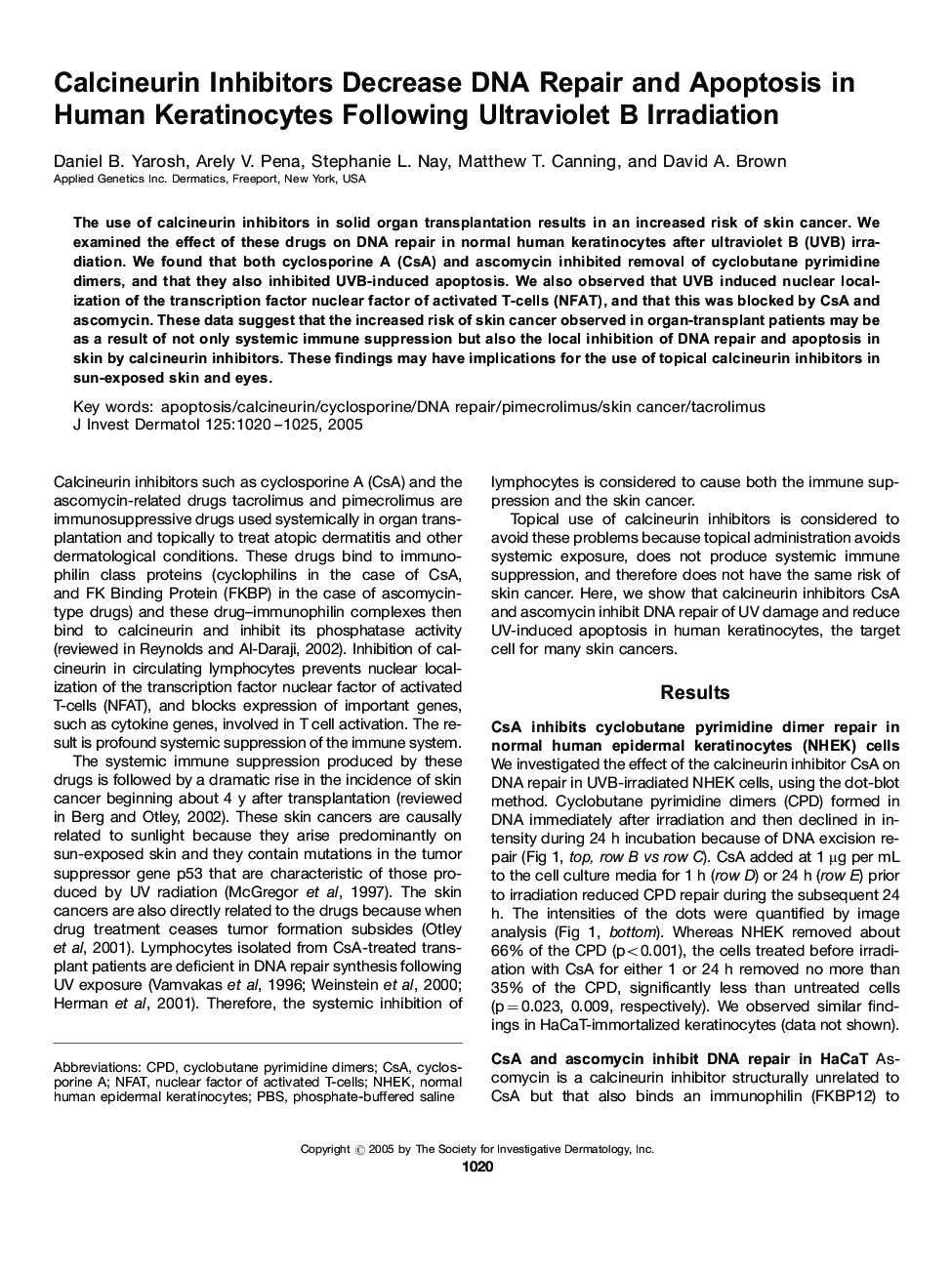| Article ID | Journal | Published Year | Pages | File Type |
|---|---|---|---|---|
| 9230612 | Journal of Investigative Dermatology | 2005 | 6 Pages |
Abstract
The use of calcineurin inhibitors in solid organ transplantation results in an increased risk of skin cancer. We examined the effect of these drugs on DNA repair in normal human keratinocytes after ultraviolet B (UVB) irradiation. We found that both cyclosporine A (CsA) and ascomycin inhibited removal of cyclobutane pyrimidine dimers, and that they also inhibited UVB-induced apoptosis. We also observed that UVB induced nuclear localization of the transcription factor nuclear factor of activated T-cells (NFAT), and that this was blocked by CsA and ascomycin. These data suggest that the increased risk of skin cancer observed in organ-transplant patients may be as a result of not only systemic immune suppression but also the local inhibition of DNA repair and apoptosis in skin by calcineurin inhibitors. These findings may have implications for the use of topical calcineurin inhibitors in sun-exposed skin and eyes.
Related Topics
Health Sciences
Medicine and Dentistry
Dermatology
Authors
Daniel B. Yarosh, Arely V. Pena, Stephanie L. Nay, Matthew T. Canning, David A. Brown,
